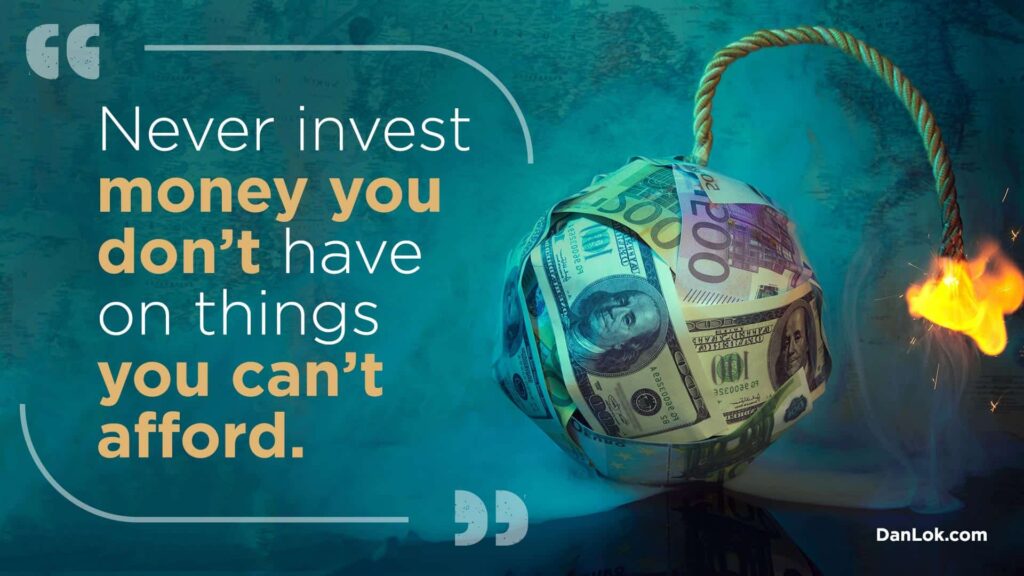Looking to scale your startup business, but need funding in order to do it? Knowing how to pitch to investors will make the process smoother.
If you want to know how to pitch to investors, there is a harsh truth that you need to be aware of. Like everyone on this planet, they are tuned into the radio frequency WIIFM, which stands for What’s In It For Me? Investors are only interested in providing you with funding so that they can get a return on their investment.
Investors want to make money. They do not care about your passions or your dreams. To them, you are just a risk they are considering investing in, in order to make more money.
That means if you want to successfully convince an investor to give you funding to scale your startup business, you need to cater your presentation to that aspect. Your investors will have doubts, fears, and questions about whether or not they can trust you. If you can overcome all of these doubts and objections in their minds, they will be more than happy to give you what you are looking for.
Get Clear on Why You’re Pitching in the First Place
If you want to learn how to pitch to investors, you need to get clear on why you are presenting in the first place. What is the goal of the presentation? What outcome are you looking for?
When you plan ahead and know the ‘why’ behind your reason for presenting, you will be able to much more effectively communicate that to your audience. The investors you are pitching to could have seen hundreds of presentations before yours. If you can’t clearly and effectively communicate why they should provide you with funding, the chances that you’ll do business together are very slim.
Do you have a vision of where the company will be in a few years? What are your next steps once you acquire the funding? Communicating your plan to the investor is very important to influencing them to fund your startup business. Your investor does not trust you nor know who you are. By presenting a detailed plan to them, it shows that you have done your research, and you know what you are doing. You are giving them reasons to believe that you will become successful, and that their money will not go to waste.

When you have clarity on what you want, communicating it to others is very easy. All that’s left is to overcome their objections by presenting a well-organized plan of how you both can succeed. The most important factor when learning how to pitch to investors, is that when your audience has no reason to doubt you, they’ll be inclined to say yes.
Make them an offer they can’t refuse. - The Godfather Click To TweetWho is Presenting is More Important Than What is Being Presented
Have you ever sat through a presentation that made you bored out of your mind? Chances are, the speaker spoke in a monotone voice, or exhibited low energy in their presentation. The speaker bored you to death.
If you want to know how to pitch to investors, you’ll need to make sure your presenter makes a good impression. If you are not a good presenter, get someone else to do the pitch, who is good at presenting.
Remember: It’s not about the offer, it’s about the person who’s presenting it. Someone who demonstrates charisma, passion and energy for what they believe in, will come off as someone who is trustworthy and entertaining. Your audience is not just judging the business, but also the people who will be running the company. And if they perceive the CEO or marketing team to be sloppy, they’ll think the same way about your offer.
That’s why making a good first impression is crucial to build rapport with an investor. For them, it’s not just about making a good ROI, it’s also about who they are working with. Successful business people know that there’s nothing worse than dealing with someone who is difficult to work with. And if they sense the two of you won’t be a good fit, you won’t get the funding you need.
If you want to successfully learn how to pitch to investors and scale your business, you need to come off as someone they can trust. That means the way you look, talk, act and move all needs to be aligned with that image. If you get nervous during presentations or freeze up and forget what you wanted to say, that means you haven’t practiced enough.
Practice Until You Are Sick Of It, Then Practice Some More
Having difficulty with presentations or have trouble getting your thoughts across clearly means you haven’t practiced enough.
When I first started doing public speaking, I was terrible at it. Like everyone else, I had stage fright and often got nervous when speaking to a large audience. But as time went on, I realized the reason why I got nervous was because I was not ready. I didn’t put in the work to prepare before the speech, and tried to wing it like everyone else. The problem was that I lacked the confidence to deliver an outstanding performance, because I did not rehearse enough.

So instead of making excuses, I practiced for hours each day, in front of a video camera, to perfect my presentation. My advice for you is to film yourself while presenting. It allows you to see how your presentation would come across to members of the audience. And if there’s certain parts of your presentation that you are not satisfied with, you can be sure your audience is going to feel the same way.
You may feel awkward watching yourself present, but it is the fastest way you can correct your flaws. After all, no one can spot your mistakes better than you can. Think about it as a way for you to see what is wrong, and correct it so you can continuously improve. I guarantee that if you practice and really focus on improving every part of your pitch, your first time presenting will be drastically different from your 20th time doing it. And when you’re finally giving your pitch to an investor, you’ll be more than ready to deliver your lines.
Practice makes perfect. If perfect means getting the funding to scale your startup business, would you be willing to practice?
Why The Best Candidate For Presentations Is Yourself
It may be tempting to simply delegate the task of presenting to another team member and skipping over all that practice, but when it comes to pitching to investors, the CEO and founder should be the ones presenting. As long as you are a good presenter, that is. And if you’re not good at it, perhaps you could learn.
Wondering why the best person to pitch is you, the founder? This is for two reasons:
First, your investors are going to have questions, and you’re the best person to answer those questions. Imagine the scenario where the investors ask if your team member is the CEO, and they reply with no. What do you think your audience is going to think?
“The CEO of this company can’t even show up to their own presentation? Do they even care about their own success?”
Second, is that your team members won’t have the same knowledge as you do. As the founder, you know where you want to take the company in 1, 2 or 5 years. You know exactly why you are seeking funding, why you’ve gone to them instead of everyone else, and why if you two decide to do business, that you can make it a win-win situation for everyone involved.
Your team members won’t have the same knowledge or passion that you do. Like your audience, they are also tuned into WIIFM, and only care about what they have to gain – which is most likely a paycheck. They lack the experience and vision that you as the founder possess. And unless the team member presenting has equity share in the company, they will most likely not demonstrate the best version of themselves during the presentation.
Some aspects – such as passion and vision, cannot be delegated. It’s one thing to have a veteran salesperson do the presentation – it’s another for the founder to take the initiative and do it themselves.
Use The Future as Negotiation Leverage
If your startup business isn’t currently at a point where it can be ‘shown off’, use its future potential as a bargaining tool. Correlating where your company will be a few years from now, is another strategy on how to pitch to investors.
For example, let’s say you sell teddy bears and your business revenue per year is $200K, with $30K as profits. To an investor, they may think your annual numbers are far too low for them to provide you with the funding. He’s impatient and wants to get his money back within a year of investing. But at the rate your company is growing, it’ll take more than 20 years before he gets his return on his investment.
If you currently lack results, you can paint a picture and make them imagine what it would be like if they did invest. For example, if they decide to provide you with more funding, it would allow you to use that funding to increase your production line and sell more bears. Now, that $30K in annual profits could rise to $100K, shortening the time it takes for the investor to make back his money.

Being able to form an image, a vision of where the company could be in the next couple of years is a powerful tool that many successful entrepreneurs use in their lives. This is called visualization, and it allows entrepreneurs to imagine a desired scenario. Once the entrepreneur has an image of what they want, they can then go after it. And if you’re familiar with the Law of Attraction, you’ll know that whatever you can conceive, you can achieve.
You can use this visualization trick to convince investors to provide you with funding. Convince them that the only thing holding your business back from becoming the giant success that it is, is finding an investor who is willing to provide the funding.
Be Willing To Take The Lower End Of The Bargain
One of the problems holding many entrepreneurs back from getting the funding to scale their business, is that they aren’t willing to settle. Besides knowing how to pitch to investors, the other part of your presentation is going to be about negotiation. Imagine that you have 100 balls in front of you. These balls are to be divided amongst you and the person you are doing business with – the optimal outcome being that you get half of the balls and they get half of the balls. It’s a fair 50-50 ratio.
However, in reality this rarely ever happens. The person with the most leverage – AKA the person who is less needy, usually walks away with more balls than the other person. In the situation where you are a startup business and are looking for funding, the investor has more leverage and can call the shots. The investor is aware that he has the upper hand in the negotiation, and will use it to collect more balls – a 40-60 or 30-70 ratio.
To some entrepreneurs, they may be happy with this deal if it means they get what they want. As long as they get the funding they need, they are willing to take the shorter end of the bargain. But for some entrepreneurs, they don’t like the fact that they are being taken advantage of. As a result, they’ll say no to every single deal and opportunity that comes their way, not realizing that if they would just accept taking the shorter end of the bargain for now, they could have much more to gain in the future.

Remember: Settling does not mean taking the lower end of a bargain forever. You are simply enduring the terms and conditions now, to give yourself an opportunity for re-negotiation later on in the future.
Opportunities multiply when they are seized. - Sun Tzu Click To TweetHow to Pitch to Investors Using Storytelling
Storytelling is a powerful way to get your point across without sounding like you’re lecturing your audience. Lectures are boring, but stories are compelling. Humans are wired to do things based on emotion, not logic. For example, why are so many people spending $10,000 on a diamond ring, when they are never going to use it again afterwards?
Storytelling allows you to convey your emotions to your audience in a very effective and entertaining way. Especially when it comes to giving a pitch to investors, you want to do everything you can to stand out from everyone else. If you incorporate your emotion and passion into a well spoken story, you will be able to captivate their attention like no one else.
For example, here is a story you could tell that provides your investor with information about who you are, the history of the business and why you need funding:
“2 years ago, when I was in college I realized there was an ever growing problem of men who did not shave. You could see men with stubble and 5 o’clock shadow sticking out in plain sight, as you walked down the hallways. Everyday, my professor would come to class with a thick, grotesque beard. And even I was a victim of this fashion frenzy during times of extreme stress.
One day, I realized I had enough of seeing other men and their unsightly beards. That’s when I decided to make two life-altering decisions:
-
I dropped out of college
-
And pursued my dream of creating men’s grooming products
With my friend, who also had problems keeping his beard under control, we founded the company Shave It Off, where we currently provide quality shaving products to men across 30 different countries worldwide.
Our company has been growing faster than we’ve ever imagined, and now we’ve run into a problem only you can help us with: we need funding. Our revenue and profits are currently bottlenecked by our lack of delivery trucks, and as a result we need more funding to buy more trucks. By doing so, we can deliver more products to men all over the world, to help them get a clean shave every single time.”
Now imagine if you didn’t put that into a story, how much less entertaining would that sound?
“2 years ago I dropped out of college. I hated beards, so me and a buddy found this company called Shave It Off. We sell shaving cream to guys around the world, because it makes a lot of money. We’re short on trucks at the moment, and need money to buy more trucks. Want to help us out?”
Captivate your audience by using storytelling in your pitch. You’ll be able to effectively communicate your side of the story, and inspire them to help you achieve your goals as well.

Get The Perfect Closing Script To Control Any Conversation
In any conversation you’ll ever have, there will always be some sort of push and pull. One person will always be trying to gain leverage over the other, through their words and actions. The person who ends up victorious, is the person who knows exactly what to say.
Those who lack business experience are often taken advantage of, and find themselves on the lower end of the bargain. The person you are speaking with can sense your inexperience, and oftentimes will use it against you to get the best deal for themselves.
However, when you know how to handle questions and objections thrown at you, you can shift the conversation so it flows in your favor. Having the intuition to tell where the conversation is heading and steer it in a direction that benefits you, is a crucial part in being able to influence others to do what you want and win negotiations.
If you want to succeed in business and learn how to influence people to do what you want, get the perfect closing script here.

































